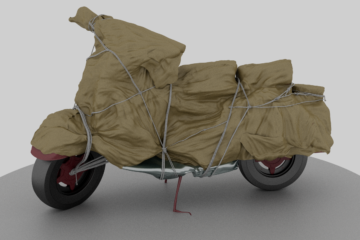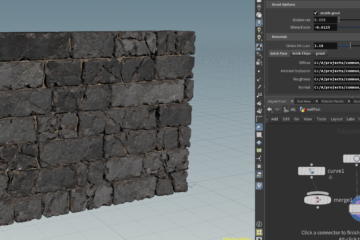This post is an update about this great post :
https://around-the-corner.typepad.com/adn/2019/01/how-to-build-pyqt5-for-autodesk-maya-2019.html
Written by Cyrille Fauvel – Autodesk Developer Network (April 2013)
Updated by Lanh Hong and Chengxi Li – Autodesk Developer Network (January 2019)
Setting up your environment:
-
-
- Follow the official instruction to prepare your Environment > Autodesk Developer Documentation
- Download SIP and PyQt source. I downloaded ‘sip-4.19.13’ and ‘PyQt5_gpl-5.11.3’. Unzip them into one folder.
- Put in the same folder the script (only the script on the ‘win’ folder) available on Github
- Backup your qt.conf located on C:\Program Files\Autodesk\Maya2019\bin and replace with the following code:
[Paths] Prefix=$(MAYA_LOCATION) Libraries=lib Binaries=bin Headers=include/Qt Data=. Plugins=qt-plugins Translations=qt-translations Qml2Imports=qml
- Unzip the package C:\Program Files\Autodesk\Maya2019\include\qt-5.6.1_vc14-include.zip in C:\Program Files\Autodesk\Maya2019\include\Qt
- Unzip the package C:\Program Files\Autodesk\Maya2019\include\qt-5.6.1_vc14-mkspecs.zip in C:\Program Files\Autodesk\Maya2019\mkspecs
- Modify the C:\Program Files\Autodesk\Maya2019\mkspecs\mkspecs\common\msvc-destop.conf. Find QMAKE_LIBS_QT_ENTRY and make sure is -lqtmain -lshell32.
- Rename the folder inside C:\Program Files\Autodesk\Maya2019\include\Qt\qtnfc to qtnfc.disabled
- Install Visual Studio 2017 Community > Download
- Install the Python package manager Pip by execute with mayapy.exe this py file get-pip using the command prompt as Administrator C:\Program Files\Autodesk\Maya2019\bin\mayapy.exe youPath\get-pip.py
- Install using pip the setuptools and enum34 with the following command
C:\Program Files\Autodesk\Maya2019\bin\mayapy.exe -m pip install setuptools C:\Program Files\Autodesk\Maya2019\bin\mayapy.exe -m pip install enum34
- Run the following scripts (the previous downloaded from github) lauching them with the VS2017 x64 Native Tools Command Prompt (as Administrator):
-
- setup.bat
- sip.bat
- pyqt.bat
-
- At this point you’re done! The last thing to do is to test it! SO launch Maya and try the following code :
import sys from PyQt5.QtWidgets import (QWidget, QToolTip, QPushButton) from PyQt5.QtGui import QFont class Example(QWidget): def __init__(self): super(Example,self).__init__() self.initUI() def initUI(self): QToolTip.setFont(QFont('SansSerif', 10)) self.setToolTip('This is a <b>QWidget</b> widget') btn = QPushButton('Button', self) btn.setToolTip('This is a <b>QPushButton</b> widget') btn.resize(btn.sizeHint()) btn.move(50, 50) self.setGeometry(300, 300, 300, 200) self.setWindowTitle('Tooltips') self.show() ex = Example()
P.S.: Remember that you must to restore the qt.conf or you get an error when Maya try to load the plugin .Hope all that’s info are usefull for others.Cheers
-


